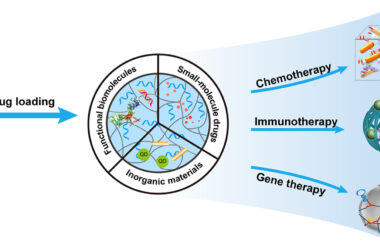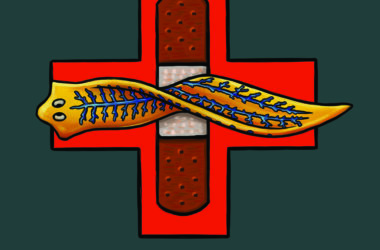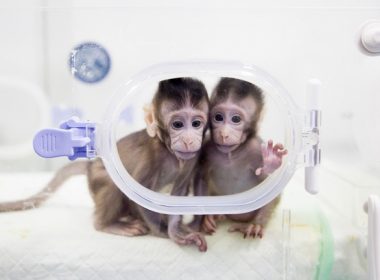McGill’s Office of Research and Innovation invited two recent recipients of the Canada Gairdner International Award to present their research to the McGill community. Demis Hassabis, CEO and co-founder of Google DeepMind, and Lynne Maquat, J. Lowell Orbison Endowed Chair and professor in the University of Rochester’s Department of Biochemistry[Read More…]
Tag: biomedical research
Stiffer DNA hydrogels open new paths for biomedical applications
Besides acting as the backbone of genetic material, DNA is getting significant attention for being a versatile building block of nanomaterials—particles one-thousandth of the diameter of a hair strand—including a type of nanomaterial called DNA hydrogels. As a rising star in the field of nanoengineering, which is the study of[Read More…]
Flatworm-inspired bioadhesives allow pressure-free hemorrhage treatment
Hemorrhages account for about two million potentially avoidable deaths around the world every year. With a 30 to 40 per cent rate of trauma mortality, the impact of hemorrhages worldwide cannot be understated. Yet, a group of researchers at McGill made a remarkable improvement in its treatment by developing bioadhesives[Read More…]
Artificial cells offer hope for COVID-19 & cancer patients
Sixty-five years and four Nobel Prize nominations after Dr. Thomas Chang invented the first artificial cell in his McGill dorm room, the invention is still improving lives in countless new ways. From blood transfusions to cancer suppression and, most recently, COVID-19 treatments, Chang’s invention continues to push the boundaries of[Read More…]
Cloning: A tale of two monkeys
At the end of 2017, researchers in Shanghai successfully cloned primates for the first time: Two macaque monkeys they named Hua hua and Zhong zhong. Published in the latest edition of the journal Cell, this was the first time that a Somatic Cell Nuclear Transfer (SCNT)—a reproductive cloning strategy—was used[Read More…]










